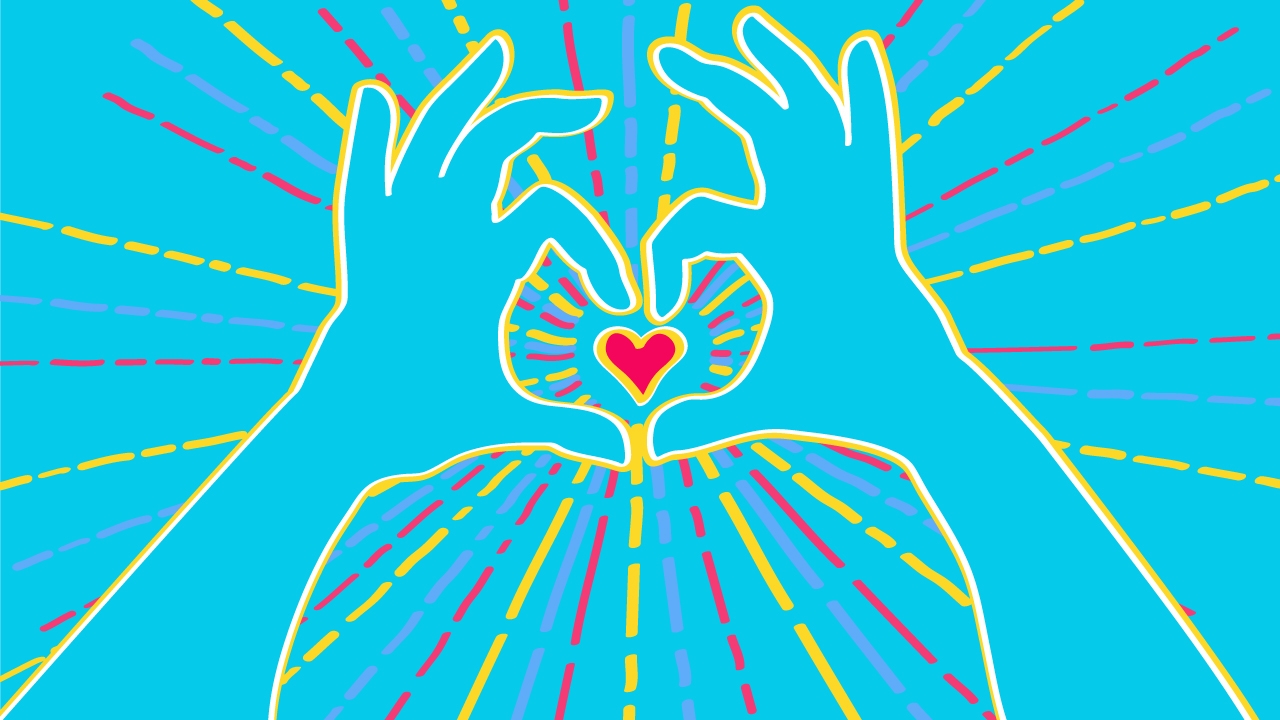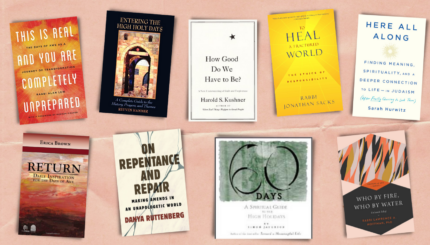“I’m sorry.”
Just two words. Two, little words. And yet, they have been identified by a certain songwriter, as the hardest words.
When we were kids, our parents taught us that that these two words were like a magic elixir. You stepped on your sister’s foot? Say you’re sorry. You ate the last cookie without permission? Say you’re sorry. You broke Mom’s vase while playing ball in the house? Say you’re sorry. Not so hard, right?
But it turns out that saying “I’m sorry” isn’t the same as seeking forgiveness.

Help us keep Jewish knowledge accessible to millions of people around the world.
Your donation to My Jewish Learning fuels endless journeys of Jewish discovery. With your help, My Jewish Learning can continue to provide nonstop opportunities for learning, connection and growth.
One day, in the very early days of my rabbinate, a congregant and her husband came to talk to me. It was clear that they were very upset and, it turned out, I was the cause. The woman’s father had recently died and I had not reached out to her. As the assistant rabbi, I was not involved in the funeral and I didn’t know the family well. Though I consider myself a thoughtful person, I don’t know why I didn’t convey my condolences to my grieving congregant. There was no excuse for my lack of attention to her. They were justifiably hurt, and they were very angry.
They weren’t lashing out; they simply wanted the opportunity to express their pain. And I sat there and listened. I just listened.
It was in that moment that I heard such raw pain and felt so ashamed that I had caused it and embarrassed by my own callousness. That realization pushed aside any feelings of defensiveness and made way for an apology. Not an empty “I’m sorry,” but a much more involved apology.
The tension-filled air weighed heavily on me. I took a deep breath. I thanked them for coming to me and for making me aware of what I had done. I made no excuses. I offered no justifications. I simply asked them for their forgiveness. I acknowledged that they might not be open to forgiving me yet. And I promised to work to rebuild their trust in me as their rabbi and be worthy of their forgiveness.
It was hard. It was so hard. But it was the only way to repair the breach.
Seeking forgiveness from another person demands that we turn inward, determine which of our behaviors were hurtful, and strategize how we might alter them. Once we have asked for forgiveness from the person we wronged, we must forgive ourselves. Such personal scrutiny is known as a cheshbon hanefesh.
How fortunate we are to have the annual gift that these Days of Repentance offer us. We have the opportunity to approach those whom we have wronged, specify those actions which we believe have caused pain and ask for forgiveness. Then, and only then, we should speak these words of remorse. This is the essence of what atoning is all about.
The apology expert, medieval Jewish philosopher and Torah scholar Maimonides, gave clear directions on how to make a heartfelt apology. He instructs us to verbally confess our mistake and ask for forgiveness (Mishneh Torah 1:1).
Contemporary conflict management experts say that the next step is expressing empathy. Show you understand why this was hurtful to them. Sincerity, empathy, and understanding are key to resolving conflicts and issues.
Another important step in the process is to offer to find a path that resolves the problem for both parties. You may not be empowered to resolve the issue the way the hurt individual wants, but you must try to the best of your ability to fix it now and for the future.
According to Maimonides, the process of asking for forgiveness doesn’t end with making a heartfelt apology. The next step requires a resolution. After expressing sincere remorse, one must resolve not to make the same mistake again. (Mishneh Torah 2:2).
Furthermore, according to Maimonides, we must do everything in our power to “right the wrong,” to appease the person who has been hurt (Mishneh Torah 2:9). Asking the person who we have hurt what we can do to ease the pain we caused is an essential part of this process. It’s uncomfortable to ask this but shows sincerity on our part.
Finally, Maimonides provides us with the ultimate teshuvah (repentance) litmus test: Act differently if the same situation happens again (Mishneh Torah 2:1). This final step is the definition of true teshuvah: When we are faced with the identical situation a second time and make the right choice, we know that we have truly repented for that sin.
It’s is a difficult process and there are no shortcuts. The good news is that we become better people through the process. Rav Yosef Soleveitchik, the preeminent Orthodox authority of the 20th century, taught, “Sin is not to be forgotten, blotted out or cast into the depths of the sea. On the contrary, sin has to be remembered. It is the memory of sin that released the power within the inner depths of the soul of the penitent to do greater things than ever before. The energy of sin can be used to bring one to new heights.”
May we come to understand the roots of our wrongdoing and the pain it has caused, find the words to reflect the genuine regret in our soul, and resolve to emerge from the experience as the person we strive to be.
Rebecca Einstein Schorr is a rabbi, essayist, special needs advocate and life-wrangler. Winner of the 2016 National Jewish Book Award for “The Sacred Calling: Four Decades of Women in the Rabbinate” (CCAR Press, 2016), Rebecca’s writing has appeared in Kveller, The Christian Science Monitor, The Forward, Tablet Magazine and other sites. Writing at her blog, This Messy Life, Rebecca finds meaning in the sacred and not-yet-sacred intersections of daily life. Engage with her on Twitter @rebeccaschorr.



